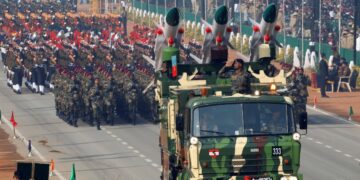In a significant move, the Bharat government has formally requested Pakistan to extradite Hafiz Saeed, the founder of Lashkar-e-Taiba (LeT) and the alleged mastermind behind the 2008 Mumbai attacks. The Ministry of External Affairs has sent an official request to Pakistan, urging them to initiate the legal process for Saeed’s extradition.
Hafiz Saeed has long been on India’s list of most wanted terrorists, with a $10 million bounty on his head placed by the United States. Despite Bharat’s repeated demands for his extradition, the absence of an extradition treaty between Bharat and Pakistan complicates the process. Saeed, who denies leadership within LeT and claims innocence, has faced various legal challenges. He was initially arrested in July 2019 and received an 11-year sentence just months before Pakistan’s review by the Financial Action Task Force.
In April of the previous year, a Pakistani court sentenced Saeed to 31 years in prison for his alleged involvement in terrorism financing. However, conflicting reports raise uncertainty about his current status, with some sources suggesting that he remains a free man after being released from house arrest in 2017. Hafiz Saeed has experienced multiple arrests and releases over the past decade.
Adding to the complexity, last year India declared Hafiz Saeed’s son, Talha Saeed, a terrorist under the Unlawful Activities Prevention Act (UAPA). Surprisingly, Talha Saeed is now preparing to contest the upcoming general elections in Pakistan under the banner of the Pakistan Markazi Muslim League (PMML), a political party founded by his father.
The extradition request comes at a time when geopolitical tensions between Bharat and Pakistan have been a longstanding issue. The development will likely have significant political implications, and the response from the Pakistani government will be closely watched as both nations navigate this complex and sensitive issue.

















Comments